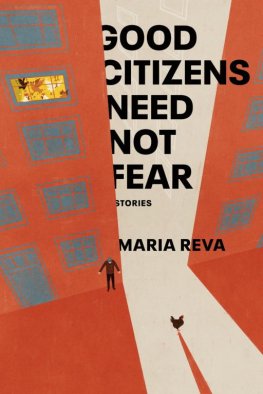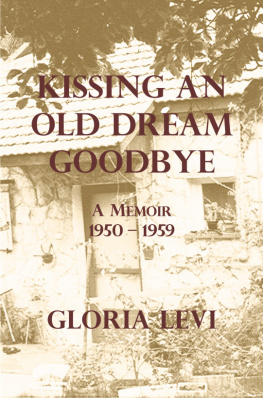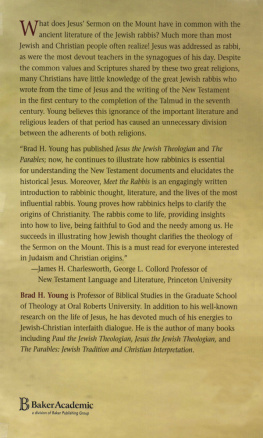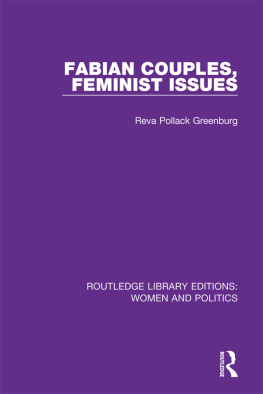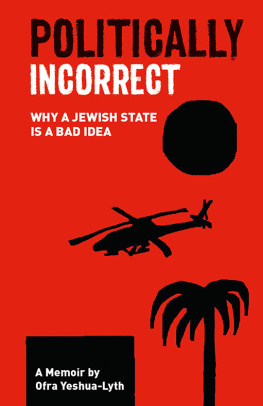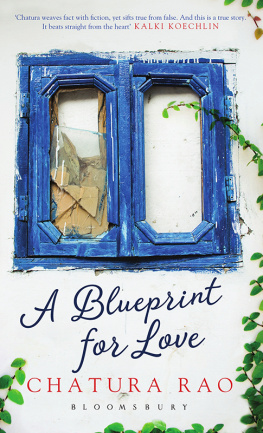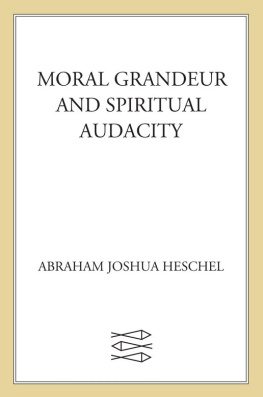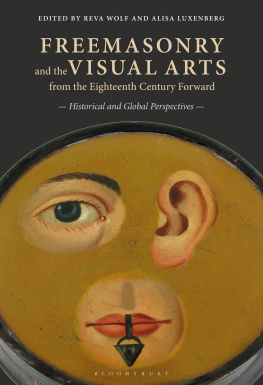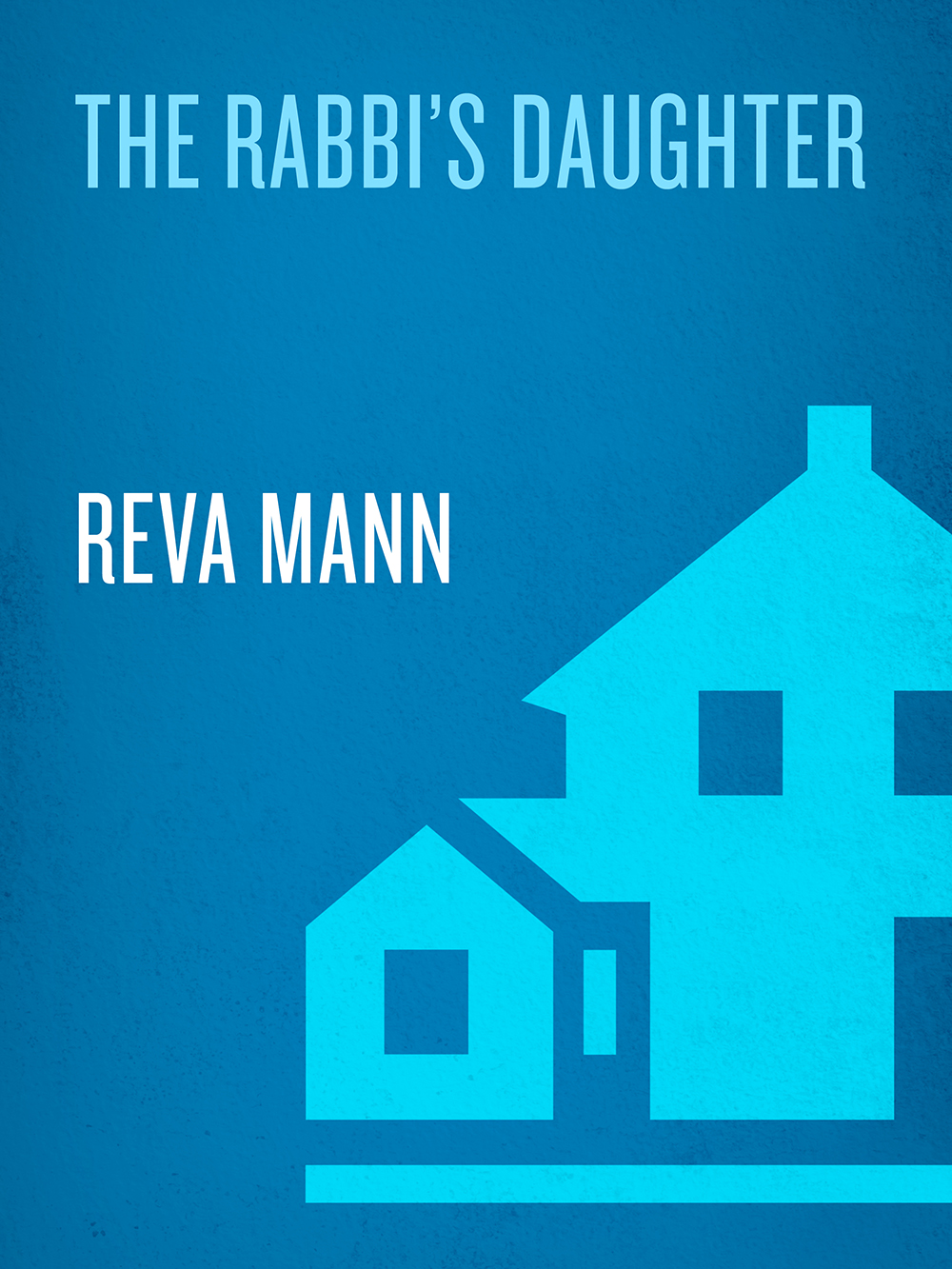
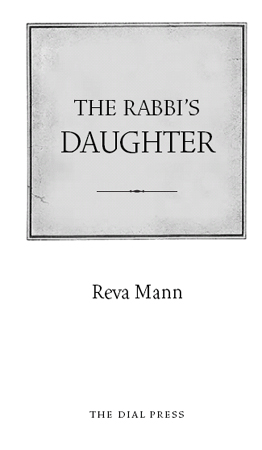
CONTENTS
In memory of
Dr. Alfred Seyman
(Gershon),
who encouraged me
to say it like it is
REPENTANCE
How do you know if you have succeeded in repenting fully? You find yourself in a similar situation where you sinned in the past but now you do not sin.
THE RAMBAM, Hilchot Tshuva (Laws of Repentance)
I stare through the library window at golden sunlight reflecting off white Jerusalem stone and long to be outdoors soaking up a tan. I want to head down to Tel Aviv Beach, strip off my baggy clothes, stretch out on the sands, and take a break from the rigid daily practice of soul-searching, prayer, and study required of us at the seminary. It is scorching hot and I imagine how cooling the Mediterranean waves would feel against my skin, how they would wash away the perspiration that is gathering on my scalp and dripping down my neck. But I know that sunning at the seaside is a pleasure from my old life, the carefree secular existence that I have willingly exchanged for the absolutes of ultra-Orthodox Jewish doctrine. Now I must keep strictly to the modesty laws and not reveal my body in public. Yet even though I pray and perform the mitzvot daily, I still find myself longing to wear blue jeans or, worse, a bikini.
The bikini I brought with me when I moved to Israel is now stuffed into the back of my wardrobe, but I doubt it would still fit me anyway. I have put on weight gorging on the kugel served at every Shabbes meal and the plates of cakes and sweets at all the engagement parties and weddings which are part of my new life. My slim body is now encased in a layer of blubber, and I hardly recognize myself when I stand naked in front of the mirror. My once flat stomach is protruding over formerly shapely legs that now melt into one another at the thigh, and chubby pads of flesh conceal what used to be high cheekbones. I have lost my looks. In the two years since I moved here from London, I have changed from a skinny, sexy girl to a dowdy matron. Luckily, the extra pounds are well hidden under the religious uniformlong, shapeless skirt, high-necked, long-sleeved shirt, and thick stockingsthat I wear even in this August heat. I know I am comfort-eating, substituting food for sex, chewing and swallowing for kissing and caressing. I feel a constant need for the solace of foods, even forbidden foods like succulent pink lobster flesh, for which I still have a craving.
My gaze wanders to the far side of the library, past the lines of shelves housing the Five Books of Moses, the Prophets, the Talmud, the Midrash, and other scholarly texts to where Mrs. Hillman, my idol, role model of the holy Jewish woman, is sitting reading the Zohar. Nicknamed Hilly by us girls of the Light of Zion yeshiva, married by an arranged match and the mother of fourteen children, she is unbothered by outward appearances, never notices the cornflakes stuck to her wig or her mismatched clothes, and devotes her life to teaching Torah. There is an ethereal quality about her that makes her seem disconnected from the material world. I imagine she lives in the world of Yetzirah or even Malchut, the higher worlds she has taught us about. Rumor has it among the girls here that she is a lamed vavnick, one of the thirty-six righteous people on whose merit the world exists. I want to be just like her and become a holy Jewish woman, but I doubt that I will ever be spiritually advanced enough to see beyond the externals to a realm where only beauty of the soul matters.
Hilly looks peaceful as she turns the pages of the sacred book. Watching her makes me forget the oppressive midsummer heat and my desire for the forbidden and inspires me to return to my own study. I pick up the heavy text in front of me, the Laws of Repentance written by the Rambam, and read the medieval philosophers advice with care because here, at the Light of Zion, I am repenting.
The Rambam encourages a repentant to veer to the opposite extreme in order to fix himself. He gives the example of a greedy man who in order to repent should give lavishly to charity. When his weakness is under control, he can return to the golden middle path of balance.
The more I read, the more I feel the Rambams treatise has been written especially for me, Reva Mann, atoning for a multitude of sins, yearning to change my past ways and live according to Jewish law. I have learned that once I rid myself of my weaknesses, God will place me in a situation similar to one where I have sinned in the past. If I withstand the test and do not give way to temptation, I will have conquered my bad traits.
I have been celibate for nine months now, and I am determined that the next time I engage in relations with a man it will be with my husband, God willing a Torah scholar, on my wedding night. But today, even though I try to concentrate on study, the pages blur in front of my eyes and memories force their way into my consciousness. My longing for a breath of freedom has brought Chris, my old London boyfriend, into the forefront of my mind, and I can see his tall body with its elongated limbs and long piano fingers, hyacinth blue eyes, thin rosy lips, cheeks unshaven with a weeks worth of beard. His head is bare and he is wearing the fishermans sweater bought on holiday in Ireland. He is carrying his pinhole camera, the one that filters light in through an angle to give a distorted effect. He used it often to photograph me in the nude so he could enlarge my breasts and buttocks and play with my shape.
I shake my head trying to rid myself of these images and bring myself back into the present. I look around at the other girls here, who all seem to be engrossed in their work. Our common desire for repentance binds us together even if we come from different walks of life and have little else in common. There is Dvorah, my study partner, christened Jane, born into a Catholic Welsh family. She has told me how she was drawn by the stories in the Old Testament, and claims to have heard Moses, Abraham, and Isaac calling out to her. In the final stage of her conversion to Judaism, she dunked in the mikveh waters and surfaced reborn as a Jewess. Then she declared her Hebrew name as Dvorah after the prophetess. She is engaged to Yonatan, also a convert and follower of the Toldos Aaron Hassidic sect. Once she is married, she will shave off her long blonde tresses, don a wig and on top of that a pillbox hat to ensure that the synthetic mop will not be mistaken for her own hair.
Even though I am on a similar quest, I am different from her and these other girls from secular families, who traveling in the Middle East found themselves at the Western Wall face-to-face with a yeshiva student offering them a free Shabbat meal or a lecture on Proofs of God, who got turned on to the buzz of love and esoteric teaching and ended up studying here. I am the daughter of an Orthodox rabbi, the granddaughter of a Chief Rabbi of Israel. This religious world is familiar to me. I already know that only an animal that chews the cud and has cloven hoofs is kosher and thats why pork is forbidden. I know Jews can only eat fish that have both fins and scales. I know how to read Hebrew and recite the prayers by heart. Yet I am also learning that there is far more to this world than I was aware of. I certainly never imagined the intensity of the spiritual pursuit of holiness or the extent to which keeping ones minds on the godly requires shunning modern thought and culture. I always thought that my fathers approach of straddling both the secular and religious worlds and integrating contemporary concepts with ancient customs was the Jewish way. But here at the yeshiva this kind of synthesis is frowned upon, as the ultra-Orthodox believe any outside influences will contaminate their carefully circumscribed and protected world.
Next page

